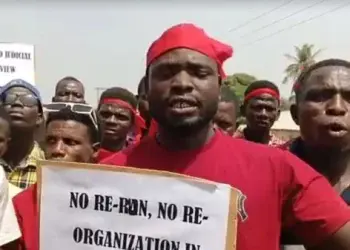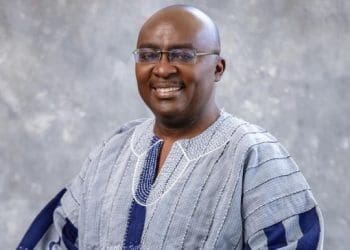The New Patriotic Party (NPP) has officially released the timetable for its upcoming flagbearer primaries, marking a significant milestone in the party’s preparation for the 2028 general elections.
According to the schedule made public by party officials, nominations for presidential aspirants will open on Monday, July 29, 2025, and close exactly a month later on Thursday, August 28, 2025.
The vetting of all submitted applications is slated to take place between September 15 and September 22, 2025.
Following the vetting, the party’s National Council is expected to receive and deliberate on the vetting committee’s recommendations on September 29, 2025.
Window for petitions and balloting outlined
Between September 30 and October 3, 2025, any aspirants with concerns about the vetting outcomes will be allowed to file petitions.
After resolving any disputes, a joint meeting of the National Executive Committee and the National Council will convene later in October 2025 to finalise arrangements.
The official publication of nominees is scheduled for October 8, followed by balloting for positions on the presidential primary ballot on October 10.
The Notice of Poll, a key statutory requirement ahead of any internal election, will be published on October 17, 2025.
Presidential primary scheduled for January 31, 2026
The climax of the internal contest—the presidential primary to elect the NPP’s flagbearer for the 2028 national election—will take place on Saturday, January 31, 2026.
Should no candidate secure the required majority, a runoff election is scheduled for February 14, 2026.
The timetable confirms a decision previously communicated in June this year, when the party’s National Executive Committee resolved to hold the presidential primary ahead of regional, national, and constituency-level internal elections.
That resolution was passed during a high-level meeting held on Tuesday, June 17, 2025.
Delegates approve sweeping reforms
This electoral timetable follows the NPP’s 2025 National Annual Delegates Conference held on Saturday, July 19, at the University of Ghana Stadium in Accra.
At the gathering, delegates overwhelmingly approved 54 motions aimed at transforming the party’s internal structure and policy direction.
The motions covered a wide array of issues, including constitutional reforms, grassroots empowerment, governance frameworks, and institutional accountability.
The event, which attracted thousands of party supporters and members from across the country, was charged with energy, passionate debates, and a unified call for internal renewal.
Expanded Electoral College and greater inclusivity
Among the major outcomes of the July conference was the approval of an expanded Electoral College.
This new structure will include not only polling station executives but also a wider base of grassroots members and several former party officials.
This reform is widely seen as a response to longstanding criticisms about top-down control and elite dominance in the NPP’s decision-making processes.
By embracing this expansion, the party has signalled its commitment to greater inclusivity and legitimacy in its internal contests.
Many analysts believe this shift may better position the NPP for a competitive showing in the 2028 general elections.
Legal challenge looms over timetable
Despite the celebratory atmosphere and momentum from the party’s internal reforms, not everyone is satisfied.
Two members of the NPP have filed a lawsuit against the party over its decision to hold the presidential primaries before regional, national, and constituency elections.
The legal action introduces a new layer of uncertainty as the party prepares to embark on one of its most consequential electoral cycles in recent memory.
A critical turning point
With its timetable now public and structural reforms adopted, the NPP appears poised to launch its internal flagbearer race in earnest.
The combination of grassroots empowerment, electoral transparency, and constitutional restructuring signals a party actively retooling for the future.
As the January 31, 2026, election date draws nearer, all eyes will be on the aspirants, the vetting process, and how the new Electoral College shapes what promises to be a keenly contested primary.












